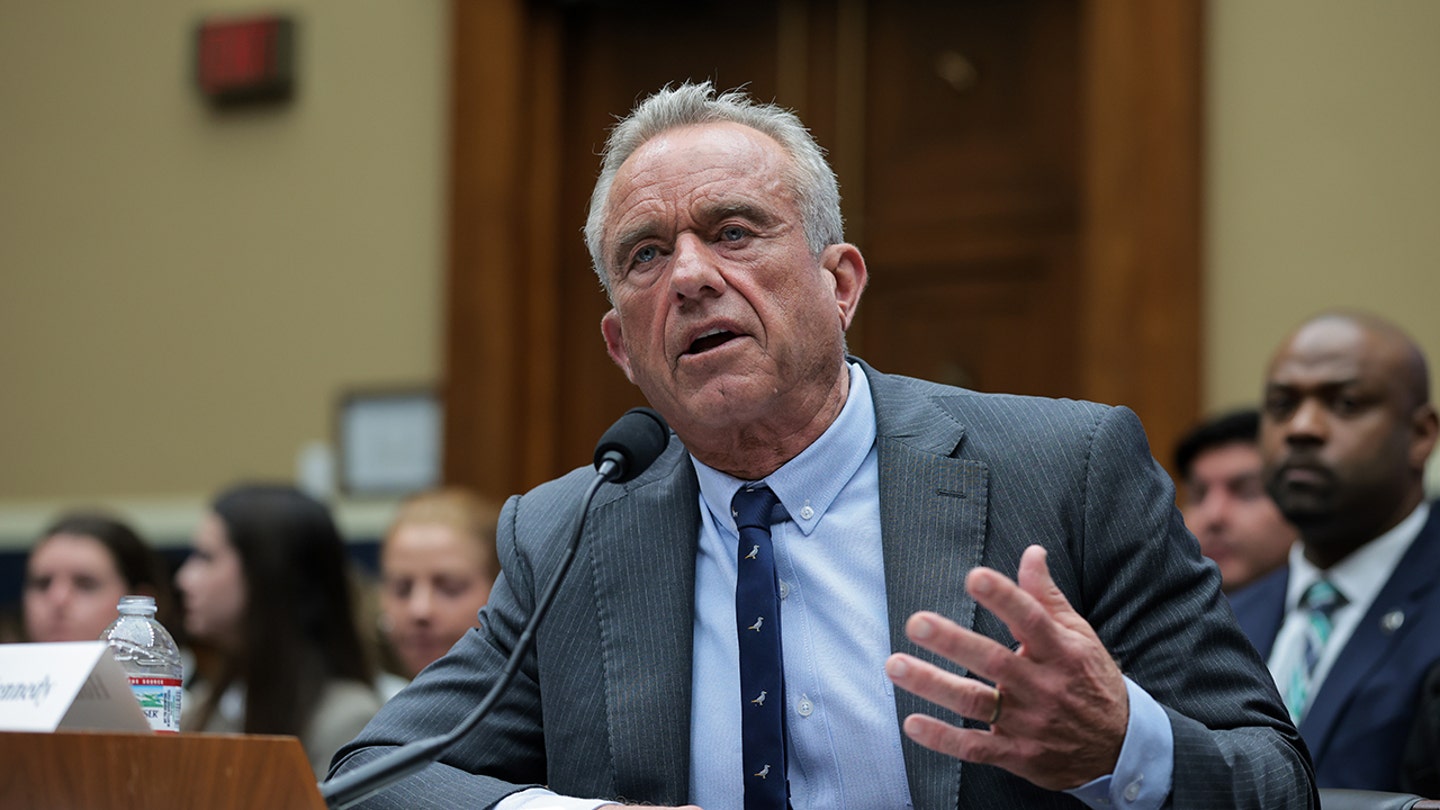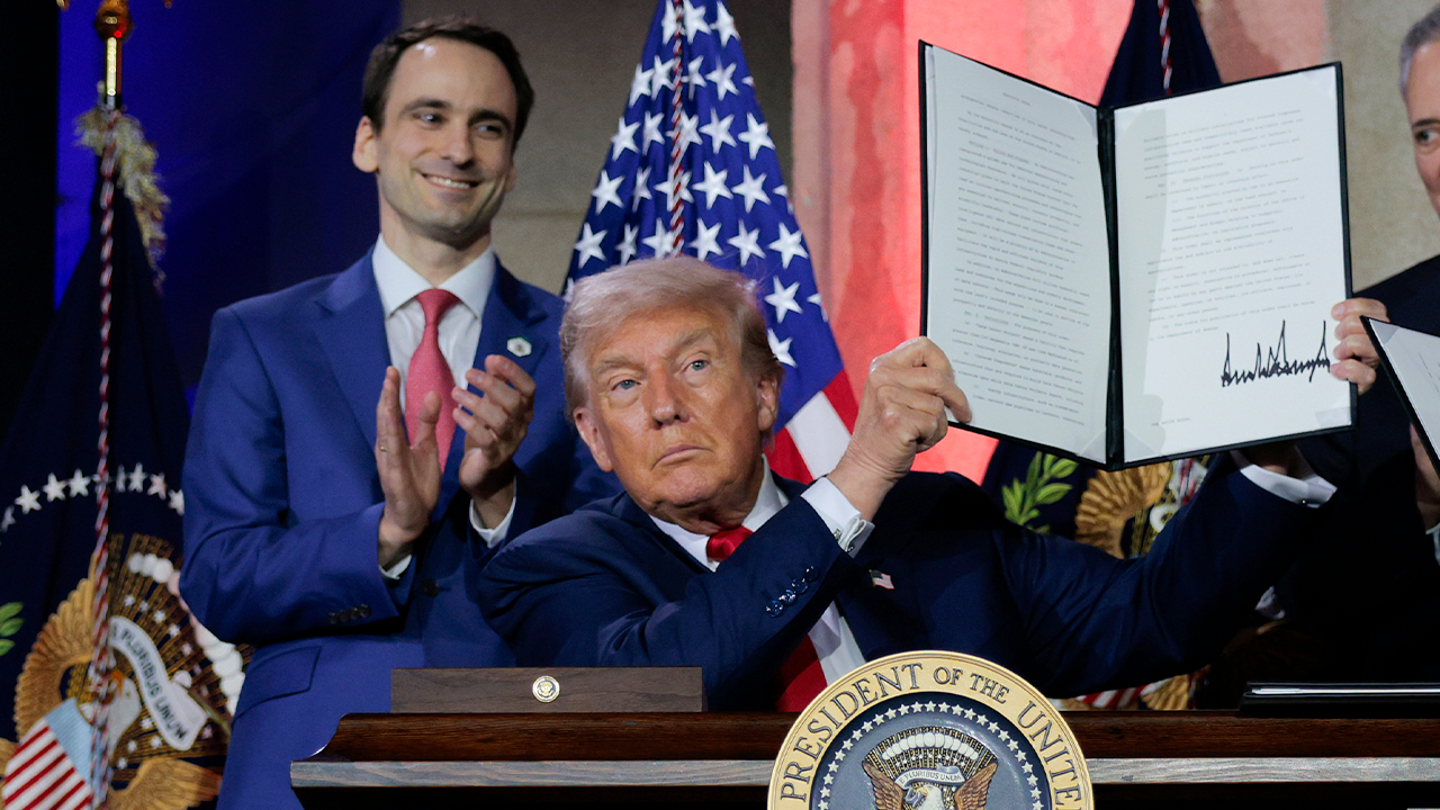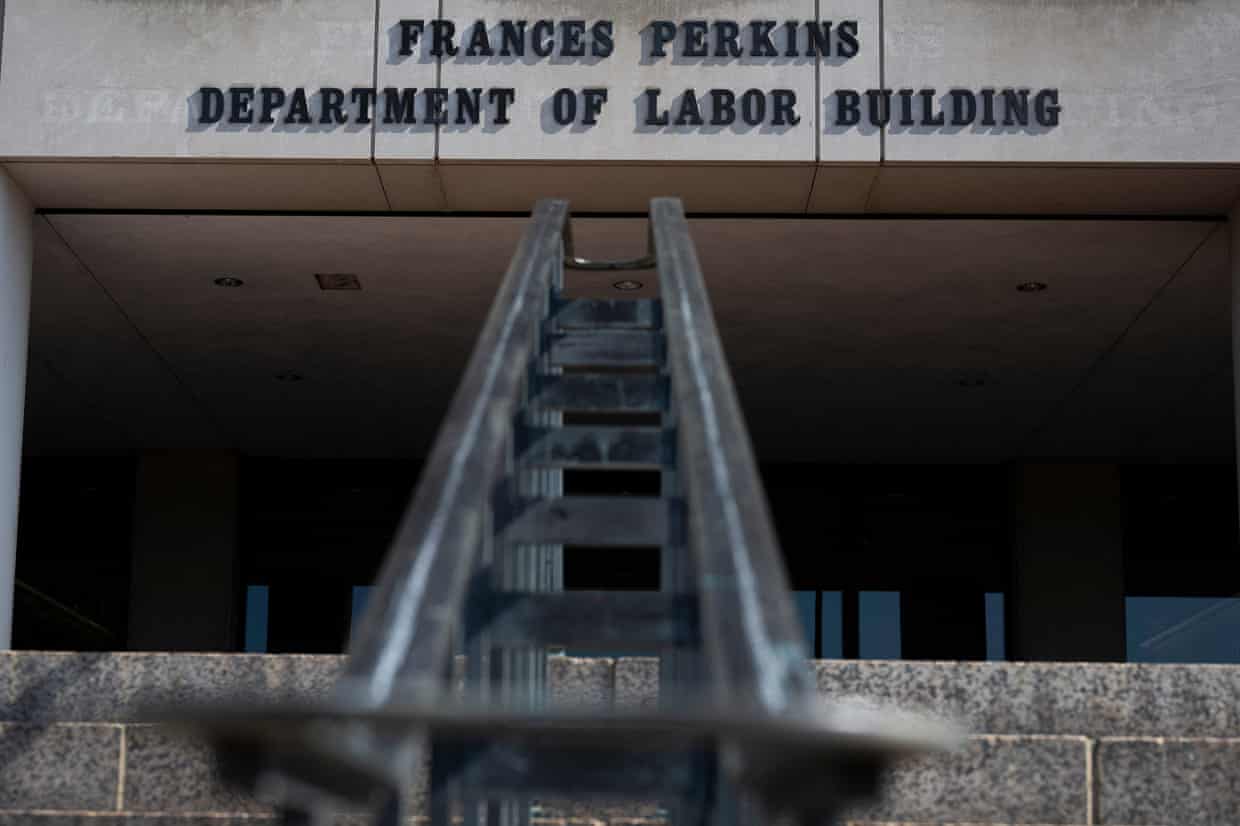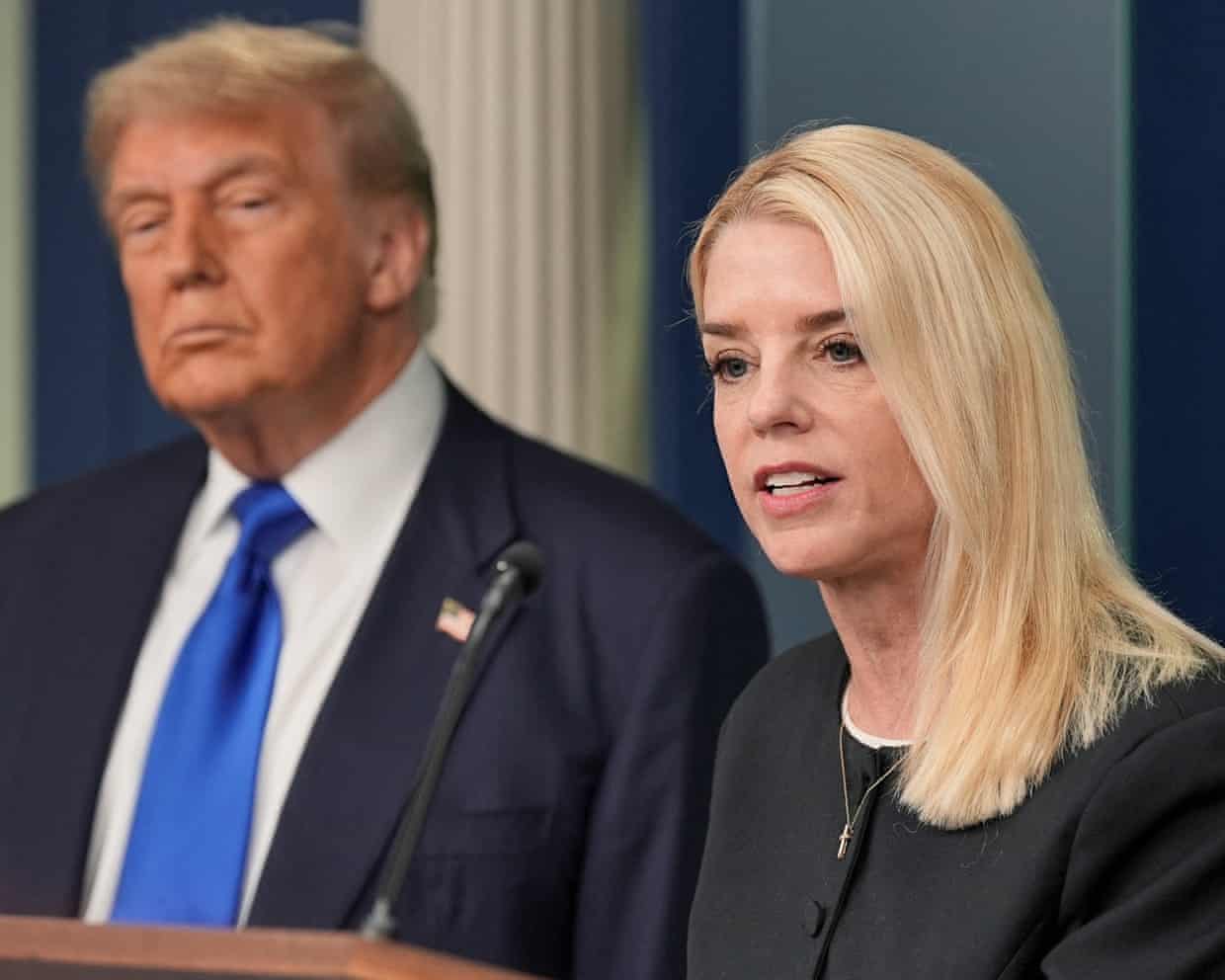
Judge orders RFK Jr's HHS to stop sharing Medicaid data with immigration officials
Entities mentioned:
- Judge Vince Chhabria: Justice, Duty, Righteousness
- Department of Health and Human Services (HHS): Control, Duty, Obligation
- Department of Homeland Security (DHS): Security, Control, Power
- Immigration and Customs Enforcement (ICE): Control, Security, Duty
- Robert F. Kennedy Jr.: Power, Control, Ambition
- Trump Administration: Control, Power, Security
- Rob Bonta: Justice, Righteousness, Duty
- Nick Brown: Justice, Duty, Righteousness
Article Assessment:
Credibility Score: 75/100
Bias Rating: 45/100 (Center)
Sentiment Score: 35/100
Authoritarianism Risk: 25/100 (Generally Democratic)
Bias Analysis:
The article presents multiple viewpoints, including those of the judge, government officials, and immigration advocates. While it leans slightly critical of the administration's actions, it maintains a relatively balanced tone by providing factual information and quoting various sources.
Key metric: Public Trust in Government Institutions
As a social scientist, I analyze that this court order significantly impacts public trust in government institutions. The judge's decision to halt the sharing of Medicaid data with immigration officials highlights a conflict between different government agencies and their respective mandates. This situation may lead to decreased trust in health services among vulnerable populations, particularly immigrants, who may fear seeking medical care due to potential immigration consequences. The court's intervention also underscores the importance of checks and balances in the US government system, potentially reinforcing public confidence in the judiciary's role in protecting individual rights and privacy. However, the revelation of previously undisclosed data-sharing agreements between HHS and DHS may erode trust in the transparency and ethical practices of these agencies, particularly among minority and immigrant communities.

Trump admin unveils groundbreaking tool 'supercharging' gov't efficiency to 'win the race' for AI dominance
Entities mentioned:
- Trump administration: Ambition, Competitive spirit, Power
- U.S. General Services Administration (GSA): Efficiency, Professional pride, Duty
- David Shive: Professional pride, Ambition, Duty
- Stephen Ehikian: Competitive spirit, Professional pride, Ambition
- David Sacks: Duty, Security, Control
- Josh Gruenbaum: Competitive spirit, Efficiency, Professional pride
- OpenAI: Ambition, Influence, Recognition
- Anthropic: Competitive spirit, Recognition, Influence
Article Assessment:
Credibility Score: 65/100
Bias Rating: 70/100 (Lean Right)
Sentiment Score: 75/100
Authoritarianism Risk: 45/100 (Mixed/Neutral)
Bias Analysis:
The article leans right, evidenced by its exclusive focus on the Trump administration's achievements and positive framing of their initiatives. The use of 'FIRST ON FOX' and reliance on administration officials for quotes without opposing viewpoints indicates a pro-Trump bias.
Key metric: U.S. Technological Competitiveness
As a social scientist, I analyze that this article highlights the Trump administration's aggressive push to establish U.S. dominance in artificial intelligence through government-wide implementation. The launch of USAi represents a significant step in operationalizing the administration's AI Action Plan, aiming to enhance government efficiency and maintain America's global technological leadership. This initiative could potentially accelerate AI adoption across federal agencies, potentially leading to improved service delivery and cost reductions. However, the rapid implementation of AI in government operations also raises questions about data security, privacy, and the potential for job displacement among federal workers. The emphasis on 'winning the race' for AI dominance reflects a competitive, nationalistic approach to technological advancement, which could have implications for international collaborations and global AI governance frameworks.

US medical journal rejects call from RFK Jr to retract vaccine study
Entities mentioned:
- RFK Jr: Righteousness, Influence, Moral outrage
- US medical journal: Professional pride, Duty, Credibility
- Trump administration: Power, Control, Influence
- National Guard: Duty, Security, Obligation
- Democrats: Opposition, Justice, Moral outrage
- Mamdani: Ambition, Competitive spirit, Influence
- Cuomo: Power, Competitive spirit, Influence
Article Assessment:
Credibility Score: 65/100
Bias Rating: 35/100 (Lean Left)
Sentiment Score: 25/100
Authoritarianism Risk: 70/100 (Authoritarian Tendencies)
Bias Analysis:
The article leans left in its framing, focusing more on criticisms of the Trump administration and giving voice to opposition figures. While it includes factual information, the selection and presentation of topics suggest a critical stance towards the current administration.
Key metric: Political Stability Index
As a social scientist, I analyze that this article reflects significant political tension and potential instability in the United States. The Trump administration's actions, including revoking Biden's order, taking control of DC police, and reviewing Smithsonian museums for 'patriotic' content, suggest a consolidation of power and potential erosion of democratic norms. The deployment of the National Guard in Washington DC further indicates escalating tensions. The article also highlights growing opposition from Democrats and other political figures, as well as concerns about healthcare and human rights. These factors collectively point to a decrease in political stability and an increase in social division, which could have long-term implications for governance and civil society in the US.

A car accident in small-town Tennessee leads to US charges against a major Mexican drug operation
Entities mentioned:
- United Cartels: Power, Control, Greed
- Jalisco New Generation Cartel: Competitive spirit, Power, Control
- Juan José Farías Álvarez (El Abuelo): Power, Control, Self-preservation
- Matthew Galeotti: Justice, Duty, Professional pride
- Eladio Mendoza: Greed, Power, Self-preservation
- US Justice Department: Justice, Security, Duty
- Trump administration: Security, Control, Legacy
- Mexican government: Cooperation, Security, Obligation
Article Assessment:
Credibility Score: 75/100
Bias Rating: 55/100 (Center)
Sentiment Score: 40/100
Authoritarianism Risk: 35/100 (Generally Democratic)
Bias Analysis:
The article presents a balanced view of the drug investigation and international cooperation. While it highlights the Trump administration's actions, it does not overly praise or criticize any political stance, maintaining a relatively neutral tone.
Key metric: Drug-related Crime Rate
As a social scientist, I analyze that this article highlights the complex international efforts to combat drug trafficking and its impact on US communities. The investigation's progression from a local car accident to international cartel indictments demonstrates the interconnectedness of global drug trade and local crime. The cooperation between US and Mexican authorities in targeting cartel leaders suggests a potential reduction in drug supply chains, which could impact the drug-related crime rate in the US. However, the adaptability of cartels and the ongoing demand for drugs may limit the long-term effectiveness of these actions. The article also underscores the violence associated with drug trafficking, both within cartels and in confrontations with law enforcement, which contributes to the overall crime rate and public safety concerns.

Judge is skeptical of Justice Department’s lawsuit against 15 federal judges as Trump tries to limit power of judiciary
Entities mentioned:
- Judge Thomas Cullen: Justice, Duty, Wariness
- Justice Department: Control, Power, Determination
- Trump administration: Control, Power, Influence
- Maryland federal judges: Justice, Self-preservation, Professional pride
- Paul Clement: Professional pride, Duty, Justice
Article Assessment:
Credibility Score: 75/100
Bias Rating: 45/100 (Center)
Sentiment Score: 35/100
Authoritarianism Risk: 65/100 (Authoritarian Tendencies)
Bias Analysis:
The article presents multiple perspectives, including those of the Justice Department and the judges' defense. While it appears to be somewhat sympathetic to the judges' position, it still provides space for the administration's arguments.
Key metric: Judicial Independence
As a social scientist, I analyze that this case represents a significant challenge to the separation of powers and judicial independence in the United States. The Trump administration's attempt to sue an entire federal court bench is an unprecedented move that could potentially undermine the judiciary's ability to check executive power, particularly in immigration cases. Judge Cullen's skepticism towards the Justice Department's arguments suggests that the court is wary of setting a precedent that could allow the executive branch to exert undue influence over the judiciary. This case could have far-reaching implications for the balance of power between branches of government and the ability of courts to provide due process in immigration cases.

New Trump labor official has history of racist, sexist and conspiratorial posts
Entities mentioned:
- Jessica Bowman: Ambition, Loyalty, Influence
- US Department of Labor: Duty, Control, Professional pride
- Trump administration: Power, Control, Loyalty
- Bureau of International Labor Affairs: Duty, Justice, Influence
- Republican Liberty Caucus: Influence, Loyalty, Freedom
- Kamala Harris: Ambition, Power, Recognition
- Laura Loomer: Influence, Loyalty, Recognition
- Indivisible: Influence, Unity, Justice
Article Assessment:
Credibility Score: 75/100
Bias Rating: 35/100 (Lean Left)
Sentiment Score: 25/100
Authoritarianism Risk: 55/100 (Mixed/Neutral)
Bias Analysis:
The article leans left in its framing, focusing heavily on criticisms of the Trump administration and Republican-affiliated individuals. While it presents factual information, the selection of content and tone suggest a critical stance towards conservative policies and appointments.
Key metric: Government Integrity Index
As a social scientist, I analyze that this article highlights significant concerns about the appointment of Jessica Bowman to a key position in the US Department of Labor. Her history of racist, sexist, and conspiratorial social media posts raises questions about the vetting process and the priorities of the current administration. This appointment could potentially undermine the credibility and effectiveness of the Bureau of International Labor Affairs, whose mission involves ensuring fair treatment of workers globally. The dissemination of conspiracy theories and false claims about election rigging by a government official may contribute to eroding public trust in democratic institutions. Furthermore, the dramatic budget cuts to the department under the current administration, coupled with the appointment of officials with questionable qualifications and extreme views, suggest a potential shift in labor policy that could have far-reaching implications for workers' rights and international labor standards.

US court says Trump’s Doge team can access social security numbers and other sensitive data
Entities mentioned:
- Trump administration: Control, Power, Efficiency
- Department of Government Efficiency (Doge): Efficiency, Control, Power
- Unions: Self-preservation, Security, Privacy
- US appeals court: Duty, Justice, Obligation
- Donald Trump: Power, Control, Efficiency
- Elon Musk: Ambition, Influence, Efficiency
Article Assessment:
Credibility Score: 75/100
Bias Rating: 45/100 (Center)
Sentiment Score: 35/100
Authoritarianism Risk: 65/100 (Authoritarian Tendencies)
Bias Analysis:
The article presents a relatively balanced view, including perspectives from both sides of the issue. However, there's a slight lean towards emphasizing the concerns of the unions and potential privacy issues, which may indicate a subtle center-left bias.
Key metric: Government Efficiency and Transparency
As a social scientist, I analyze that this court decision represents a significant shift in the balance between government efficiency efforts and individual privacy concerns. The ruling allows the Trump administration's Doge team to access sensitive personal data, potentially impacting millions of Americans. This move towards centralized data access could lead to increased government efficiency, but it also raises serious privacy and security concerns. The court's decision suggests a prioritization of administrative streamlining over potential privacy risks, which could have long-term implications for how personal data is handled in government systems. The conflict between unions and the administration highlights the tension between workforce protection and government downsizing initiatives. This case also demonstrates the ongoing debate about the appropriate scope and power of unofficial government teams like Doge in accessing and utilizing sensitive information.

Trump officials move to punish lawyer who tried to block client’s deportation
Entities mentioned:
- Joshua Schroeder: Justice, Duty, Professional pride
- US Department of Justice: Control, Power, Righteousness
- Trump administration: Control, Power, Righteousness
- Donald Trump: Power, Control, Ambition
Article Assessment:
Credibility Score: 75/100
Bias Rating: 35/100 (Lean Left)
Sentiment Score: 25/100
Authoritarianism Risk: 70/100 (Authoritarian Tendencies)
Bias Analysis:
The article leans left in its framing, portraying the government's actions negatively and emphasizing potential threats to legal representation. While it includes some government perspective, the overall tone is sympathetic to Schroeder and critical of the administration's approach.
Key metric: Rule of Law Index
As a social scientist, I analyze that this case demonstrates a potential erosion of the Rule of Law Index in the United States. The Trump administration's attempt to sanction an attorney for defending his client's rights could have a chilling effect on legal representation in immigration cases. This action may discourage lawyers from vigorously defending their clients, potentially undermining due process and access to justice. The use of government power to target individual attorneys who challenge deportation orders could be seen as an attempt to consolidate executive power over the judicial system, particularly in immigration matters. This trend, if continued, could significantly impact the independence of the legal profession and the overall strength of the rule of law in the country.

US judge orders Trump administration to restore part of UCLA’s frozen funding
Entities mentioned:
- Trump administration: Control, Power, Influence
- UCLA: Self-preservation, Freedom, Justice
- US judge: Justice, Duty, Professional pride
Article Assessment:
Credibility Score: 70/100
Bias Rating: 35/100 (Lean Left)
Sentiment Score: 45/100
Authoritarianism Risk: 35/100 (Generally Democratic)
Bias Analysis:
The article leans slightly left, evident in the framing of Trump administration actions as contentious. However, it reports on a factual court decision without overtly partisan language.
Key metric: Rule of Law Index
As a social scientist, I analyze that this article highlights a tension between executive power and judicial oversight. The Trump administration's attempt to freeze UCLA's funding, likely for political reasons, was partially reversed by a federal judge. This judicial intervention demonstrates the checks and balances system at work, but also indicates potential executive overreach. The case impacts the Rule of Law Index by showcasing the judiciary's role in limiting executive actions that may be politically motivated or legally questionable. It underscores the importance of an independent judiciary in maintaining democratic norms and protecting institutions from political interference.

‘Living laboratory’: Trump admin urged to look to South America for lessons on fighting migrant gangs
Entities mentioned:
- José Gustavo Arocha: Professional pride, Security, Influence
- Trump administration: Security, Control, Righteousness
- Kristi Noem: Ambition, Security, Duty
- Biden administration: Unity, Obligation, Justice
- Tren de Aragua: Power, Greed, Control
- Nicolás Maduro: Power, Control, Greed
- Chilean government: Security, Justice, Control
- Ecuadorian government: Security, Justice, Control
- Colombian government: Unity, Obligation, Wariness
Article Assessment:
Credibility Score: 65/100
Bias Rating: 70/100 (Lean Right)
Sentiment Score: 30/100
Authoritarianism Risk: 55/100 (Mixed/Neutral)
Bias Analysis:
The article leans right, evidenced by its favorable portrayal of Trump-era policies and critical stance on the Biden administration's approach to immigration. The primary source is a former military officer advocating for stricter border control, which aligns with conservative viewpoints.
Key metric: National Security Index
As a social scientist, I analyze that this article highlights the complex interplay between immigration policies, transnational crime, and national security. The focus on South American countries' responses to migrant gangs, particularly Tren de Aragua, serves as a comparative case study for potential U.S. strategies. The article emphasizes the importance of swift, coordinated action across government agencies, as demonstrated by Chile and Ecuador's approaches. It also warns against open border policies without proper vetting and enforcement mechanisms, using Colombia as a cautionary example. The framing of these issues suggests that a more aggressive, security-focused approach to immigration and border control is necessary to combat transnational crime effectively. This perspective aligns with the Trump administration's stance on immigration and security, potentially influencing public opinion and policy decisions regarding border control and law enforcement strategies in the United States.